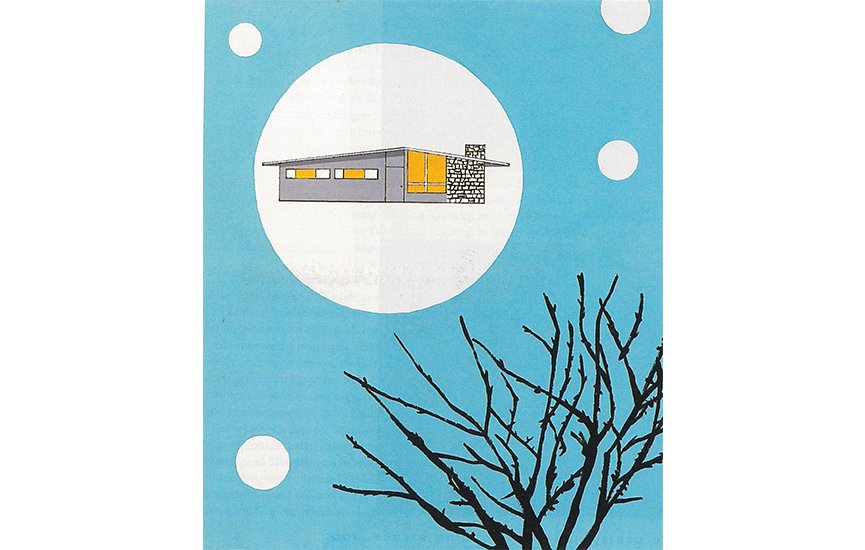Worth senior contributing editor Jim Roger was rather prescient in his column, Wealth of Nations, in the June 2002 issue when he essentially predicted the collapse of the housing market. In his subhead, he posited: “A double-digit return for no money down sounds like a dream. Well, guess what?” And given the events of September 2008, which was still six years on the horizon at the time of this article, it’s downright eery to read his foreboding statement today: “Fannie Mae has such a huge impact on the market that the ripple effect could be devastating.”
Last month in this column, I wrote about how expensive everything had gotten since I left on my three-year trip around the world. Movies are now $10 in some places. Payphone calls often cost 50 cents. Dry cleaning is a luxury. All of this, of course, goes again what U.S. government figures for inflation suggest about the rising cost of goods.

Nothing reflects the massive jump in prices more than the cost of real estate in the United States. While I was away, I’d heard that prices were soaring. That’s an understatement: According to the National Association of Realtors, median home prices in the United States have jumped nearly 40 percent since 1995.
Americans borrowed more than $630 billion in home equity loans in 2000, compared with $289 billion in 1995.
“Invest in real estate” is the mantra these days of investors who have abandoned the anemic stock market for housing’s guarantee of double-digit returns. When the Commerce Department recently announced that housing starts for single-family homes rose 7.4 percent in February, the strongest gain in more than 20 years, it was clear that real estate has been the water floating the boat of our troubled economy. Without such a prosperous environment, it’s likely we’d be in far worse shape.
The question on everyone’s mind is obvious: Can it last? Many people acknowledge that the housing market is sure to mellow in the future, but die-hard optimists point to the fundamentals. Our population continues to grow, spurring demand for housing. Interest rates are at their lowest in a generation allowing people to get more home for their dollar. The growth of the mortgage business continues to open the door for new homeowners, who can put down next to nothing to buy into the American Dream. Supply hasn’t outstripped demand. Inflation is subdued.

Don’t get me started on inflation; let’s consider the other element. The demographic question is interesting. The birth rate, after all, hit a low in 1973 and has been rising fairly steadily ever since. Those people born in 1973 are 29 now. Real estate bulls will say that these new buyers, combined with the growing number of immigrants, will continue to drive the housing market. My guess is that immigration will become a trickier subject with the threat of terrorism looming over the country. As for 29-year-olds, I think much of their impact has already been factored in.
Even if I’m wrong and 20-somethings are still snapping up houses, another segment of the population provides a balancing effect. Baby boomers have created much of the demand for housing particularly in areas with good schools. As they hit their mid-50s and have less need for new homes, demand will likely shrink.
Falling interest rates have clearly been fuel for the fire of the housing market. Rates on 30-year mortgages fell from a high of 8.7 percent in May 2000 to a low of 6.5 percent last November. While it’s been nearly impossible to predict the near-term direction of interest rates, the consensus belief is that Fed chairman Alan Greenspan will increase rates as much as 50 basis points in the coming months. He will have to if inflation is to remain as low as it appears to be.
Fannie Mae has such a huge impact on the market that the ripple effect could be devastating.
Lower interest rates have been a boon to the current homeowners who have refinanced their mortgages, locking in these lower rates, often borrowing more money against their houses without raising their monthly payments. With the extra cash, they can make home repairs, pay bills, invest in the stock market or even speculate in real estate.
Although reducing your monthly bills or adding value to your home is a good idea, Americans are now more leveraged than ever. In 1999, more than 50 percent of all mortgages had down payments of 10 percent or less, according to a U.S. Census report, compared with 7 percent a decade later. Americans borrowed more than $630 billion in home equity loans in 2000, compared with $289 billion in 1995. We still have one of the lowest savings rates among first-world nations. Total household debt is $7.5 trillion, or twice it was a decade ago. Mortgage debt accounts for 71 percent of that debt. Such an overleveraged position is a recipe for disaster.
As for the growth of the mortgage business, I’m very concerned. Buying and selling mortgages has become big business. Countless mortgage brokers are willing to sell mortgages for as little as 5 percent down, 3 percent, or no money down. Most of them can afford to because they can immediately turn around and sell the mortgages to government-created agencies Fannie Mae and Freddie Mac. In fact these two companies buy about 70 percent of new mortgages.
Even if the optimists are right and the real estate boom slows only slightly, the effects on the many new mortgage businesses could be profound. If Fannie Mae curbs its buying of mortgages even a little, all those brokers willing to sell a mortgage for 1 percent down would have to cut back as well. Fannie Mae has such a huge impact on the market that the ripple effect could be devastating.
Critics of these government agencies believe that Fannie Mae is the next shell game about to collapse. Many people in Washington are concerned that the government will bail out investors in case of a major default. I’m not shoring the stock, but I’m thinking about it. Other companies such as Tol Brothers, Centex, Paulte Homes, Kookmin Bank and Ryland Group would also be at risk. I don’t own any of these at the moment.
The real estate market is already showing some signs of softening. Nationally home prices fell 1.9 percent in the last three months of 2001. Delinquencies on mortgages from the Federal Housing Administration, the lower end of that market, are on the rise. Housing prices are increasing faster than wage levels, which is causing people to move deeper into debt in order to buy into the housing mania. Two of the most successful California real estate investors I know have gotten out of the business. They would rather watch from the sideline because they think the whole business is about to blow up.
Even though a home will rarely lose all its value as shares of a company stock or a 401(k) can, those who think that real estate is a guaranteed moneymaker are living in a dream. I like to peruse the real estate section of the paper every week to get a sense of what my home is worth. Based on what I’ve seen, I ought to sell.
Here’s my rule: If the price of your home is more than you would spend yourself, you should seriously consider selling, especially if it’s a second home or an investment property.
What did a wise investor once say when asked how he got rich? “I always sold too soon.”
Obviously, no one wants out of a good thing while it’s still flying, but prudence has its benefits. In 1987, the Nikkei index broke 20,000 for the first time. People said it would never stop. Others got out, saying it was overpriced. By December 1989, it had reached nearly 40,000. Today it’s trading around 11,000. What did a wise investor once say when asked how he got rich? “I always sold too soon.”
People want to believe that a boom, whether in oil, real estate, or the Internet will last forever, ignoring history and experience. Builders and developers will argue otherwise, saying that yes, prices may go down a bit but not where they are selling, not where they are building houses. They have better locations, better designs, more house for the money. It’s the same thing you hear in any bubble, the “Goldilocks economy” we heard so much about in the 1990s: not too hot, not too cold. It’s just right. They say we’ll have a soft landing. But has there ever been a soft landing when a bubble popped?
Jim Rogers is a senior contributing editor. Photos and a daily Chronicle of his recent journey around the world are available at jimrogers.com.
Reprinted from the June 2002 issue of Worth.









